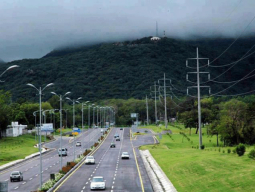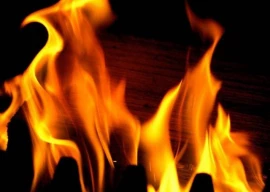
The government seems to be at a loss to explain the escalating sectarian strife in Balochistan, which has claimed more than 400 lives in more than 200 incidents of ethnic and sectarian violence in the past four years.
The decade-long insurgency recently turned into a battleground for politically motivated attacks on religious sects with banned outfit Lashkar-e-Jhangvi allegedly targeting the Shia and Hazara communities throughout the embattled province.
The provincial home department said in an official report last week that cross-border influence, among other factors, was fuelling the sectarian violence.
The official report which covers a period of four years states that over 400 Shias and Hazaras, who account for nearly a fifth of the country’s 170 million population lost their lives as a result of the aggression. Around 100 pilgrims have been killed in just the first half of the current year.
Another 450 people were injured in over 110 sectarian attacks from 2008 to 2011.
The increasing trend of violence is alarming. Over 120 members of the Shia and Hazara communities were gunned down last year while close to a 100 sustained injuries, compared to 81 fatalities and 200 casualties in 2010.
In 2009, 39 members of the Shia community were killed and 20 injured in over 30 incidents of ethnic violence, while only 15 were killed and 10 injured in 2008.
The police have arrested alleged terrorist Sher Dil, also known as Babu, for his reported ties with Lashkar-e-Jhangvi in a bid to curb the violence. Others who have been arrested include Hafiz Muhammad Usman alias Abbas, Dawood Badeeni, Jalil Ababkki and Shafiq Rind. However, some suspects such as Usman Saifullah and Ziaul Haq still remain at large.
Alleged terrorists Khalid Bungulzai and Majeed Langove are said to have been killed in police encounters and the government has constituted a high-level inquiry committee headed by the home minister of Balochistan to further probe the incident.
The provincial government has decided to refer the investigation of “sensitive cases” to the Crime Investigation Department and called for a review of the regulations pertaining to the movement of pilgrims under the Travel Agency Act, 1976.
The provincial home secretary also held meetings with the Iranian consul general. Both sides agreed to beef-up security arrangements from Quetta to Taftan and discussed possible arrangements for facilitating the movement of members of the Hazara community between Marriabad to Hazara Town and Hazar Ganji.
Published in The Express Tribune, July 1st, 2012.
COMMENTS (11)
Comments are moderated and generally will be posted if they are on-topic and not abusive.
For more information, please see our Comments FAQ

1731570357-0/elon-musk-(1)1731570357-0-165x106.webp)
-(1)1717678110-0/Kendrick-(1)-(1)1717678110-0-165x106.webp)














@Sheheryar Khan: Well Said, both sides of the Durand line Muslims live! It were and still are the Muslims (Taliban) and Pakistani Army (Muslims) fighting to the death. It were same Muslims (Tajeks and Uzbeks both Sunni Muslims fought with Sunni Muslims the Talibans) Don't play this game of Religion any more. No one trust it any more. What has always being wrong in Pakistan is Majority sees wrong doings but no one complains!
@Sheheryar Khan:- The concept of Hindu majority and Muslim majority was rejected by more than 50% Muslims who chose to live in India instead of migrating to Pakistan. What happened to 20% minorities at the time of partisan? How come Hindus in Pakistan dwindled from over 20% to less than 1% and Muslim population in India increased from 8% to 15%? Kerala and WB have over 25% Muslim population and Kerala is likely to be a Muslim majority state in the next 20 years. By your logic, a significant part of India should become Islamic state as and when a particular region becomes Muslim majority. Pakistan got larger share of land compared to population at the time of partition because a lot of Muslims chose to live in India. For your information, India is not a Hindu state but a secular state.
A stupid thought - If India, Pakistan, and Afghanistan agree to win some and lose some - and together make the decision on recognizing LOC and Durand line in exchange of peace and prosperity, will that be very wrong?
Why isn't PPP government doing anything in Balochistan?
@Awans: Those are specific serious cases that involve Baloch nationalists and security forces. The SC can take notices on many cases, and does not have to base it on a previous suo moto limit in a province. The CJ simply has not taken note of sectarian plight anywhere, and minorities question why. Correct, our leaders are primarily responsible and should act. But, given the current interventionist trend from this populist activist institution, seen as people's champion in dispensing justice, is unusually, if not hypocritically, silent.
Good notes on Hangu and the many sectarian extremist citizens in our society. Sectarian religious bias, prejudice and bigotry is more common than we admit, possibly even from high positions. The CJ is quoted to be on a crusade to save Pak from secularism, which it has never enjoyed, and makes one wonder how religiously dogmatic his views are. Heavy Wahhabi/Salafi/Deoband/Sunni extremist ideology was promoted by the army state since the 80's, which has affected the mainstream majority, to the point that there is a sizeable support from a population giving sanctuary to the L-e-J and the Quetta Shura, shamefully under everyone's noses. It needs to be tackled.
Can ever Pakistan solve the Durand line issue? Untill then Pashtuns, Balochs and Hazaras will suffer!
@PAKI POWER: CJ have already taken about killings and missing people. So CJ have taken suo moto already. But i think why we are so dependent on CJ and in democratic countries leave something for our so called elected leaders as well.
@Mohajir: No i dont think so. I have met so many Sunni extremists in my life that I think people are themselves responsible for it. Same is the case with Shias and others. Now it is the time to stop this Conspiracy theory Clamor. If you want to see what is meant by Extremism then someday Visit Hangu and it is like a War between Saudia and Iran there and Hangu bye the way is in Pakistan. Hangu is a hot bed for sectarian groups. The main problem is that everywhere Army action could not be the solution. Armies in internal conflicts in democratic countries are the last resort and that should be used with extreme caution.
Secterian voilence is a great tool to unite people when you are fighting insurgensy.
Where is our suo motto CJP...???